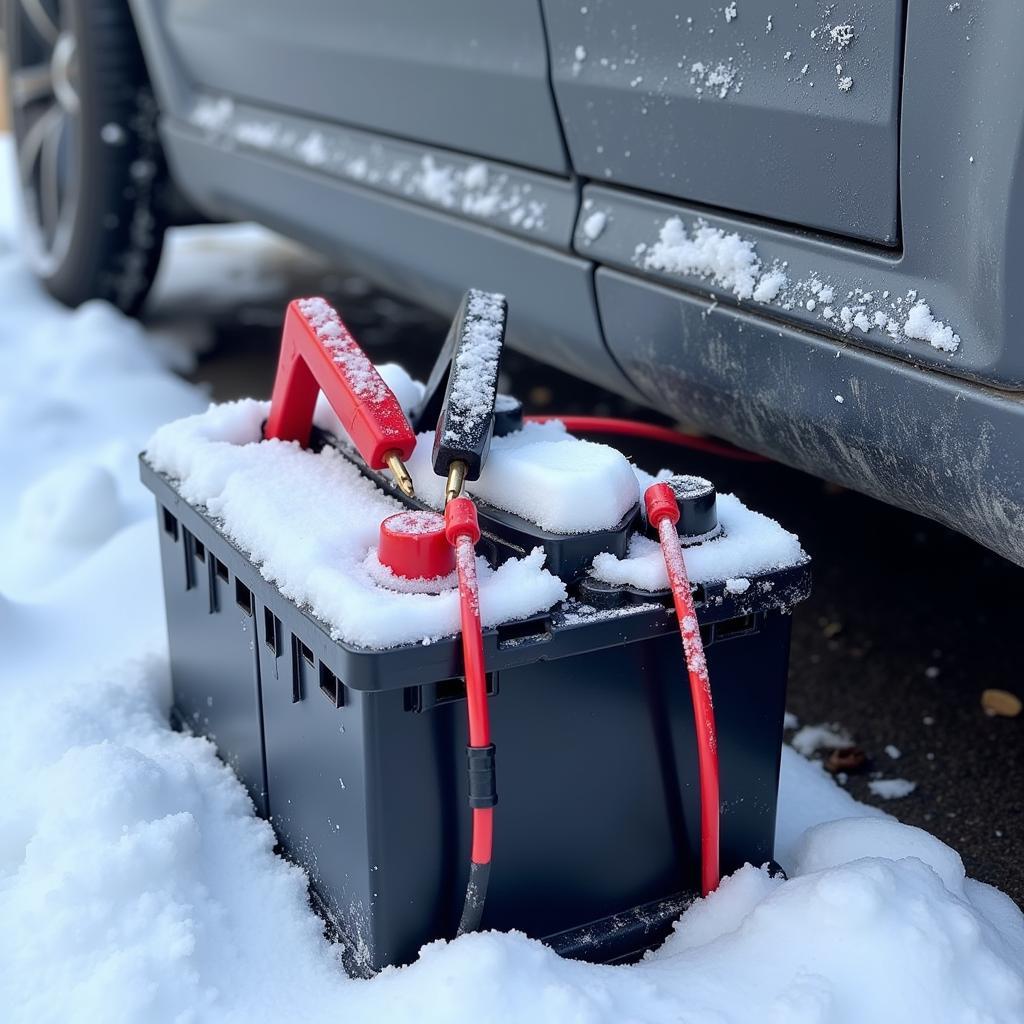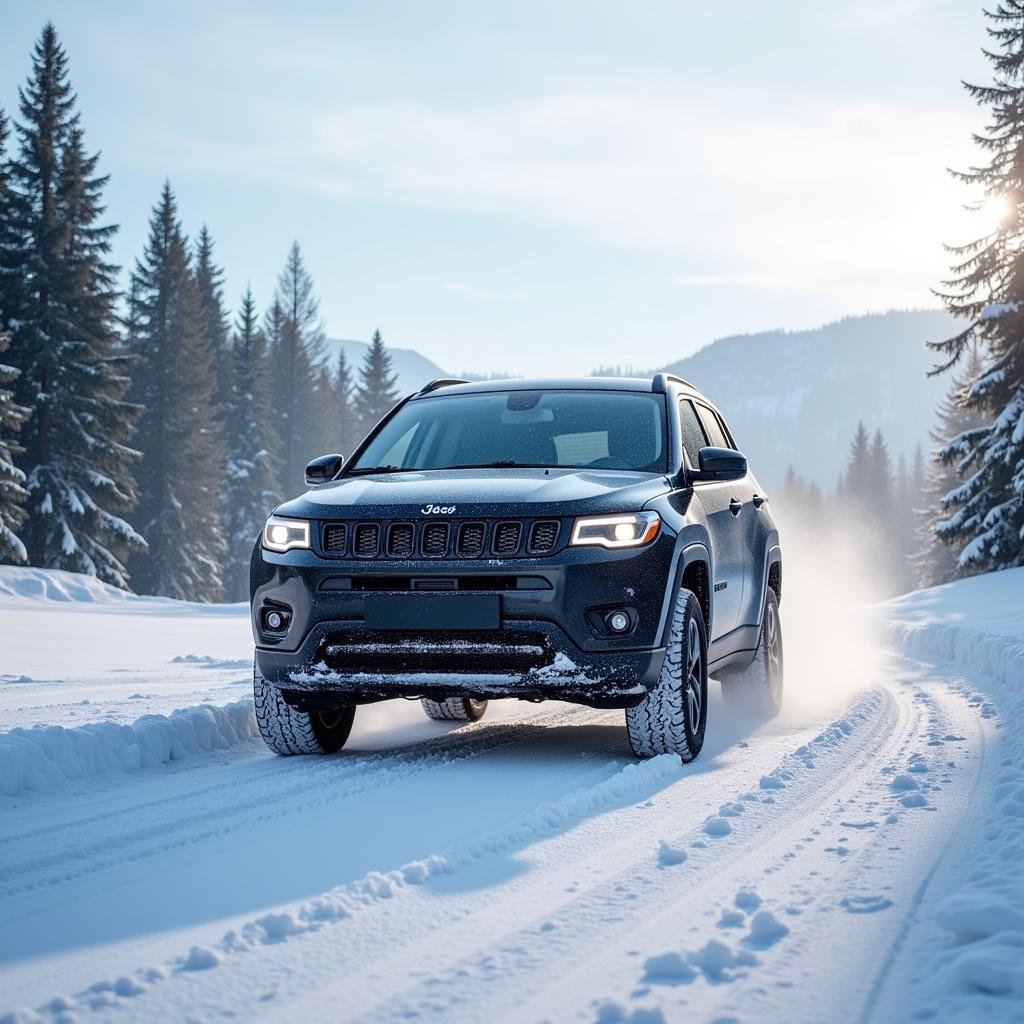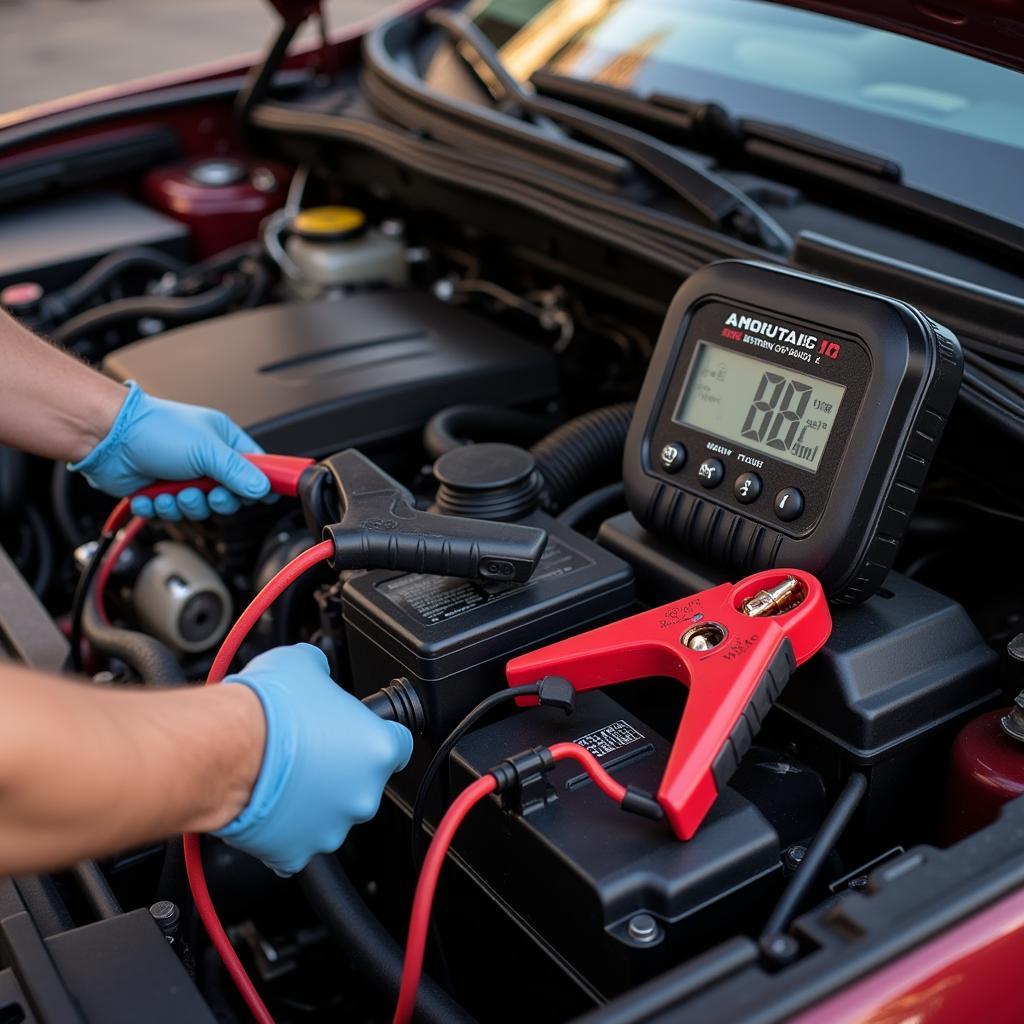Winter can be a challenging time for car owners, with frigid temperatures and icy roads posing unique threats to your vehicle’s performance. From sluggish starts to battery woes, the cold weather can wreak havoc on various car components, leading to a host of unexpected problems. Understanding these common winter car issues is crucial to ensuring your vehicle’s reliability and safety during the season.
Why Your Car Acts Up in Winter
The plummeting temperatures of winter wreak havoc on your car’s systems. Here’s a breakdown of why your car may behave differently in the cold:
- Thicker Oil: Engine oil thickens in the cold, making it harder for the engine to start and increasing the risk of wear and tear on engine parts.
- Battery Drainage: Cold weather reduces battery power significantly, making it difficult for the battery to provide enough juice to start the engine.
- Increased Fuel Consumption: Your car uses more fuel during winter due to the need to heat the engine and maintain a comfortable cabin temperature.
- Frozen Fuel Lines: In extreme cold, fuel lines can freeze, restricting fuel flow to the engine, leading to starting issues.
- Tire Pressure Fluctuations: Cold air causes tire pressure to drop, potentially affecting your car’s handling and safety.
- Difficulty with Brake Systems: Brake fluid can thicken in cold weather, making it harder for brakes to respond as effectively.
- Increased Wear and Tear: The cold temperatures can put added stress on various car components, leading to increased wear and tear.
Common Car Problems in Winter: What to Look Out For
Here are some of the most common car problems drivers experience during winter:
Difficulty Starting Your Car
This is a classic winter problem. Here are some of the most common reasons why your car might struggle to start in the cold:
- Battery Issues: A weak battery is often the culprit behind difficult starts in winter.
- Old or Worn Spark Plugs: Spark plugs can fail to ignite fuel properly in the cold, resulting in a no-start situation.
- Frozen Fuel Lines: In extreme cold, fuel lines can freeze, preventing fuel from reaching the engine.
What to do: To avoid a dead battery, make sure to regularly check battery health and ensure your car is charged before embarking on any trips. Consider keeping a jump starter in your car for emergencies.
 Car Battery in Winter
Car Battery in Winter
Engine Problems
Winter’s frigid temperatures can lead to a range of engine problems, including:
- Engine Misfire: This occurs when the engine doesn’t burn fuel properly due to cold-related issues like a faulty spark plug or ignition system.
- Engine Knocking: A knocking sound in the engine could be caused by faulty engine components or the use of inappropriate fuel during winter.
What to do: Use the correct grade of engine oil for winter conditions and ensure your car’s maintenance schedule is up-to-date to prevent engine problems. Consider adding a fuel stabilizer to your tank during winter.
Battery Issues
Car batteries are more susceptible to failure during winter due to the cold temperatures. Here’s what you need to know:
- Battery Drainage: Cold weather significantly reduces a car battery’s power, making it harder for the battery to provide enough juice to start the engine.
- Battery Failure: A worn-out battery is more likely to fail in the cold, especially if it’s not maintained properly.
What to do: Have your battery checked regularly, especially if you experience a slow start. Keep jumper cables in your car for emergencies. Consider investing in a battery warmer if you live in a very cold climate.
Tire Problems
Your car’s tires can also pose challenges during winter:
- Tire Pressure Fluctuations: Cold air causes tire pressure to drop, potentially affecting your car’s handling and safety.
- Winter Tire Considerations: If you live in an area with significant snowfall or icy conditions, you may need to switch to winter tires for better traction and handling.
What to do: Check your tire pressure regularly, especially before long drives. Consider using a tire pressure gauge to ensure your tires are inflated to the correct pressure.
 Winter Tires on Snowy Road
Winter Tires on Snowy Road
Electrical Problems
Winter’s cold can cause various electrical problems in your car, including:
- Faulty Lights: Cold weather can cause bulbs to fail or malfunction, resulting in reduced visibility.
- Electrical System Issues: The cold can affect the performance of various electrical components, including the car’s sensors and control modules.
What to do: Ensure your headlights, taillights, and other essential lights are working properly. Avoid leaving your car’s electrical system on for extended periods when it’s cold.
Other Common Winter Car Problems
Here are a few other common winter car problems you might encounter:
- Frozen Door Locks: The cold can cause door locks to freeze, making it difficult to open your car.
- Frozen Windshield Wipers: Frozen windshield wipers can make it impossible to see clearly while driving.
- Icing on the Windshield: Frozen or icy windshields can obstruct your vision and make it difficult to see the road.
What to do: Use a de-icer spray on your door locks and windshield wipers to prevent freezing. Keep a scraper in your car to remove ice and snow from your windshield.
Winter Car Maintenance: Key Tips
Preventing problems is always better than dealing with them after they occur. Here are some winter car maintenance tips to keep your vehicle running smoothly throughout the cold months:
- Battery Check: Have your battery checked regularly, especially if you experience a slow start.
- Fluid Levels: Check your engine oil, coolant, and brake fluid levels to ensure they’re topped off.
- Tire Pressure: Check your tire pressure regularly, especially before long drives. Consider using a tire pressure gauge to ensure your tires are inflated to the correct pressure.
- Windshield Wiper Blades: Replace worn wiper blades, which can cause streaks or leave dirt on your windshield, reducing visibility.
- Heating System Check: Ensure your heating system is working properly, especially if you live in a cold climate.
- Fuel System: Add a fuel stabilizer to your tank during winter to prevent fuel line freezing and ensure optimal engine performance.
- Exterior Lights: Check all your exterior lights, including headlights, taillights, brake lights, and turn signals, to ensure they’re functioning correctly.
Winter Car Safety: Extra Precautions
Here are some winter driving tips to stay safe on the roads:
- Give Yourself More Time: It takes longer to brake and accelerate on snow and ice, so give yourself extra time to reach your destination.
- Slow Down: Drive at a slower speed on slippery roads.
- Avoid Sudden Movements: Avoid sudden braking or acceleration on icy roads.
- Use Low Gear When Driving Uphill: Using low gear helps prevent your car from slipping backward on a steep incline.
- Keep a Safe Distance: Maintain a safe distance between your car and the vehicles ahead of you.
- Stay Informed: Listen to weather reports and be aware of road conditions before you head out.
- Be Prepared: Carry a winter emergency kit in your car, including jumper cables, a flashlight, a blanket, a first-aid kit, and water.
Expert Tip: “If you live in a cold climate, consider switching to winter tires for better traction and handling during the winter months,” says John Smith, a veteran automotive technician with over 20 years of experience.
Expert Tip: “Always check your battery health before winter starts, and keep a jump starter in your car in case you experience a dead battery,” says Mary Jones, a certified auto mechanic with a passion for winter car care.
Conclusion
Winter can be a challenging time for car owners, but by being proactive and understanding common winter car problems, you can minimize their impact on your vehicle. Regular maintenance, preventive measures, and safe driving practices are essential for keeping your car running smoothly and ensuring your safety on the roads. If you ever have any questions or need assistance with your winter car maintenance, reach out to Autotippro. We’re here to help you navigate the cold season with confidence.
AutoTipPro
+1 (641) 206-8880
500 N St Mary’s St, San Antonio, TX 78205, United States
FAQ
Q: Should I use a different type of oil in the winter?
A: Yes, it’s recommended to use a lighter-weight oil in the winter as it will flow more easily in cold temperatures.
Q: How often should I check my tire pressure during winter?
A: It’s a good idea to check your tire pressure at least once a week during winter, as cold temperatures can cause a significant drop in pressure.
Q: What should I do if my car won’t start in the cold?
A: Try jumping the battery first. If that doesn’t work, check your fuel lines for freezing, or contact a mechanic.
Q: Should I use winter tires if I don’t live in a snowy area?
A: While winter tires offer better traction on snow and ice, they’re not necessary for areas with little to no snowfall.
Q: What’s the most important thing to do to prevent car problems in winter?
A: Regular maintenance is crucial for ensuring your car runs smoothly throughout the winter months.






Leave a Reply